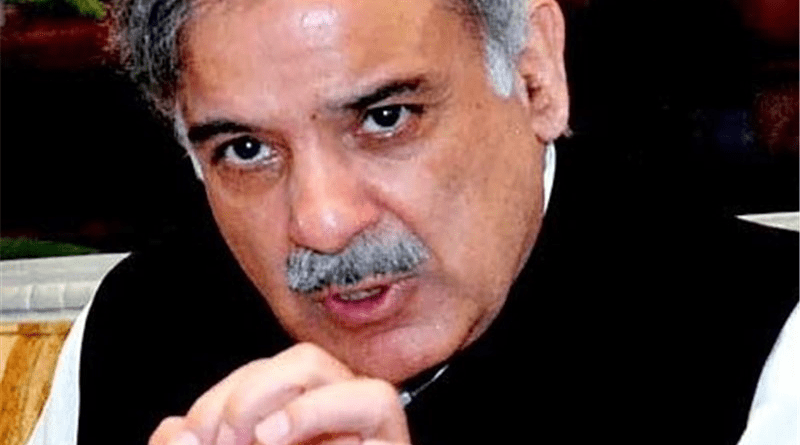Pakistan: Shehbaz Sharif Caught Between A Rock And A Hard Place – OpEd
Reportedly, the PML-N-led coalition government appears unwilling to take the blame for any unpopular decisions it may have to take to fix the economy. It wants guaranteed backing of the powerful military establishment to help it see through the remaining period of its tenure till August 2023.
The coalition, despite pressure from within its ranks to clear the air about the possibility of early polls or taking unpopular decisions, is looking to the powers that can make its tenure peaceful. With each passing day, the government’s indecisiveness is taking a toll on the already sinking economy, as well as governance.
The current rulers appear reluctant to take up a ‘perceived offer’ from the establishment to enter into a bailout deal with the IMF, present the federal budget next month and immediately announce the date for polls.
This is a sticking point at the moment, the coalition parties are of the view that taking difficult decisions on the economic front for a short term will cost them dearly if elections are held early.
It appears that all allied parties have agreed on completion of the 15-month term. The problem is that if the IMF agrees, the economy can be revived. But raising petroleum prices does not seem acceptable. PML-N wants the support from ‘all sides’ to steer the country out of the crises, without being blamed for taking unpopular decisions.
Shehbaz Sharif, who has a reputation of being an efficient administrator, could not assert himself. His role seems to have been reduced to an ‘interlocutor’ among his elder brother Nawaz Sharif, the establishment and the coalition partners — PPP and JUI-F in particular.
Sharif looked very enthusiastic during the first couple of weeks after assuming charge, now seems to have lost the steam and is finding it hard to negotiate the difficult position his government finds itself in today.
The dire situation facilitates the ‘architect’ of the ruling coalition, PPP co-chairman Asif Ali Zardari, to once again reach out to the heads of all allied parties to come up with a fresh strategy. On Saturday, he called on Shehbaz Sharif and discussed the challenges in detail.
The meeting also assumed importance as Zardari flew in to Lahore from Islamabad in the backdrop of the denial of relief to Prime Minister Shehbaz from a special court in a money laundering case that declined to confirm his bail.
A brief statement issued after the over 90-minute meeting said, “The meeting discussed the current situation, especially the economy, in the country. The coalition partners expressed their complete confidence in the leadership of the premier and praised the incumbent government for its steps for the welfare of the people.”
The fast-changing political scenario, followed by ousted premier Imran Khan’s pressure through massive rallies and an impending long march on the capital, has forced the main players of the coalition to review the strategy they formed before toppling the PTI government early last month.
The coalition believes it can handle the PTI march if other things are sorted out with the establishment. Interior Minister Sanaullah has expressed his wish to arrest Khan provided he gets the ‘go-ahead’, as he thinks even one day in prison would make the ousted premier forget politics.
PML-N Vice President Maryam Safdar also voiced her father’s views on it, saying “Nawaz Sharif is ready to say goodbye to the government, but not pass on the economic burden to the people of Pakistan, as there is no point in carrying the weight of the blunders of Imran Khan. It’s better to go to the masses to seek a fresh mandate.”
The coalition government is likely to take a decision about whether to stay in government or go for fresh polls after its final ‘backdoor talks’ with the establishment next week. The perception is, “If things don’t work out, the coalition will immediately rush for electoral and accountability reforms and to announce the date for elections.

